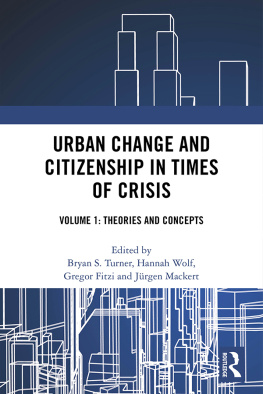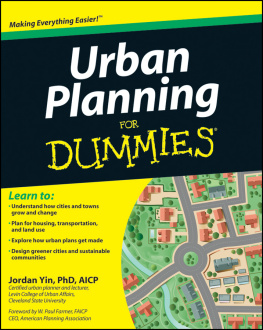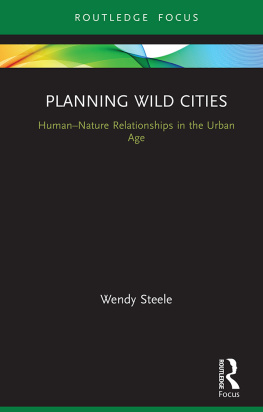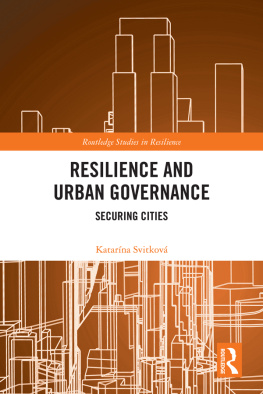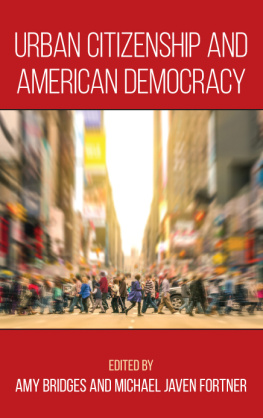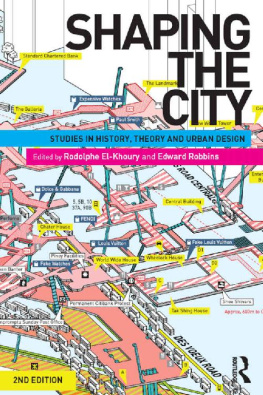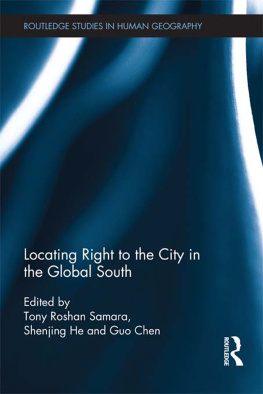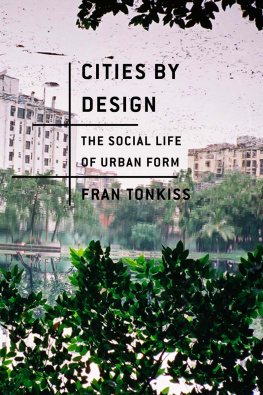IN THE PUBLICS INTEREST
Geographies of Justice and Social Transformation
SERIES EDITORS
Nik Heynen, University of Georgia
Mathew Coleman, Ohio State University
Sapana Doshi, University of Arizona
ADVISORY BOARD
Deborah Cowen, University of Toronto
Zeynep Gambetti, Bogzii University
Geoff Mann, Simon Fraser University
James McCarthy, Clark University
Beverly Mullings, Queens University
Harvey Neo, National University of Singapore
Geraldine Pratt, University of British Columbia
Ananya Roy, University of California, Berkeley
Michael Watts, University of California, Berkeley
Ruth Wilson Gilmore, CUNY Graduate Center
Jamie Winders, Syracuse University
Melissa W. Wright, Pennsylvania State University
Brenda S. A. Yeoh, National University of Singapore
IN THE PUBLICS INTEREST
Evictions, Citizenship, and Inequality in Contemporary Delhi
GAUTAM BHAN
Published by the University of Georgia Press
Athens, Georgia 30602
www.ugapress.org
2016 by Gautam Bhan
All rights reserved
Most University of Georgia Press titles are available from popular e- book vendors.
Printed digitally
Library of Congress Control Number: 2016946700
ISBN: 9780820350097 (hardcover: alk. paper)
ISBN: 9780820350103 (paperback: alk. paper)
ISBN: 9780820350080 (ebook)
A version of this text for distribution in India and South Asia was published by Orient BlackSwan.
For Delhi, For Dilli.
In absentia, for Priya Thangarajah.
You are yearned for, still.
Tables, Figures and Maps
Tables
Figures
Maps
Publishers Acknowledgements
For permission to reproduce copyright material in this volume, the publisher wishes to make the following acknowledgements.
State Bank of India for permission to use images from its advertisement campaigns, appearing as Welcome to a Cashless World in this book.
Bennett, Coleman & Co. Ltd. for permission to use a creative of a building of The Times of India used in the Times Chalo Dilli campaign, appearing as
Abbreviations
| AAP | Aam Aadmi Party |
| AIR | All India Reporter |
| ASUS | Ambedkar Slum Utthan Sangathan |
| BJP | Bharatiya Janata Party |
| CPI | Communist Party of India |
| CWP | Civil Writ Petition |
| DDA | Delhi Development Authority |
| DLT | Delhi Law Times |
| DSS | Delhi Shramik Sangathan |
| EWS | Economically Weaker Sections |
| FICCI | Federation of Indian Chambers of Commerce and Industry |
| HIC | Habitat International Coalition |
| HIG | High Income Group |
| HPEC | High Powered Expert Committee (on Urban Infrastructure) |
| HLRN | Housing and Land Rights Network |
| HRLN | Human Rights Law Network |
| ITR | Intent to Reside |
| JNNURM | Jawahar Lal Nehru National Urban Renewal Mission |
| LIG | Low Income Group |
| MISA | Maintenance of Internal Security Act |
| MCD | Municipal Corporation of Delhi |
| MIG | Middle Income Group |
| MPD | Master Plan of Delhi |
| NAPM | National Alliance of Peoples Movements |
| NASSCOM | National Association of Software and Services Companies |
| NSSO | National Sample Survey Organisation |
| NULM | National Urban Livelihoods Mission |
| NUSP | National Urban Sanitation Policy |
| PUDR | Peoples Union for Democratic Rights |
| PIL | Public Interest Litigation |
| PUCL-K | Peoples Union for Civil Liberties, Karnataka |
| RAY | Rajiv Awas Yojana |
| RTI | Right to Information |
| RWA | Resident Welfare Association |
| SCC | Supreme Court Cases |
| SFS | Self-Financing Scheme |
| SPARC | Society for the Promotion of Area Resource Centers |
| SBI | State Bank of India |
| UNESCO | United Nations Educational, Scientific and Cultural Organization |
| ZEIS | Zone of Special Social Importance |
IN THE PUBLICS INTEREST
Introduction
How did we get here?
Rafiya Khanum sticks in your mind. Of slight build and boundless energy, she is endlessly on the moveher hands seem unable to stop themselves. As we talk, she cleans, stirs a pot of rice, strings another bead into a necklace she will sell to a supplier, and watches her sleeping son. From the corner of her eye, she keeps anxiously glancing upward to check the distance between my head and the ceiling fan, rightly afraid that if I stretch my hands too far upward Id meet a rotating blade. Youre too tall for this house, she says to me, laughing. But then, who isnt?
She and I are seated on the mud floor of her ten-foot-bytwelve-foot thatch, tin and mud hut in Bawana, a resettlement colony on the northwestern periphery of New Delhi. Bawana was created to house families evicted from the place Rafiya still calls homea string of basti s). Only 30 per cent of evicted households received any form of resettlement or rehabilitation. Rafiya was one of the luckier ones.
A PIL is an innovative judicial mechanism established by the Indian judiciary in the late 1970s explicitly to protect the fundamental rights of the marginalised. Its founding purpose was to enable vulnerable and marginalised citizens to access justice in the highest courts of the land through significantly eased legal procedures and rules of standing. Through PILs, the Supreme Court aimed to become, as one of its own judges argued, the last recourse for the oppressed and the bewilderedparticularly the rights to life (Article 21), equality (Article 14), anti-discrimination (Article 15) and freedom of expression (Article 19)were interpreted, expanded and enforced.
In March 2003, however, a two-judge bench of the Delhi high court told a different story. The judges lamented that the river Yamuna which is a major source of water has been polluted like never before. [The] Yamuna bed on both the sides of the river has been encroached by unscrupulous persons with the connivance of authorities. as well as the Central Governmentto remove encroachments up to 300m from both sides of River Yamuna in the first instance. No encroachment either in the form of jhuggi-jhompri clusters or in any other manner by any person or organization shall be permitted.
Unlike in previous evictions, this clearance was explicitly delinked from resettlement, i.e. the provision of an alternative dwelling or plot of land to evicted households. Under the garb of resettlement, the judges argued, encroachers are paid a premium for further encroachment. The courts ire against resettlement was part of a broader critique of urban development in Delhi per se. In previous orders in the same case, they had argued that, the whole concept of urbanized development of land in Delhi has almost collapsed as a consequence of such haphazard development and irrational policies. Any person can sit wherever he wants. Squatting on the land gives a right to get another allotment which allotment also he sells and after selling comes back on the same land. The policy itself gets defeated. While agreeing that it was the duty of the government to provide shelter for the underprivileged, the judges argued that [the governments] lack of planning and initiative cannot be replaced by an arbitrary system of providing alternative sites and land to encroachers on public land.


